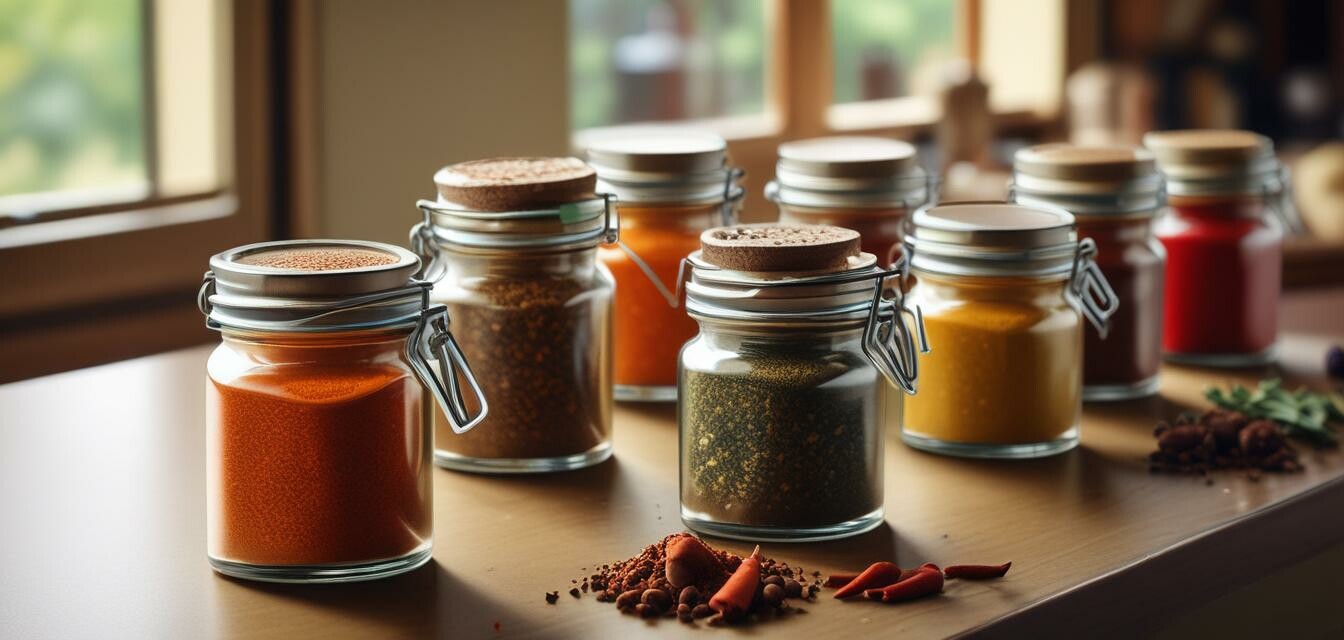
Secrets to Cooking with Spice Blends
Key Takeaways
- Spice blends are essential for enhancing flavor in dishes.
- Understanding individual spices can help create custom blends.
- There are different types of blends for various cuisines.
- Proper storage is crucial for maintaining spice freshness.
- Experimentation is key to finding the perfect blend for your taste.
Cooking is not just a job; it's an art. One of the best ways to elevate your culinary creations is by using spice blends. These blends can add depth and complexity to dishes, making them more enjoyable. Understanding how to effectively use spice blends can transform your cooking from mundane to extraordinary. Let's dive into the secrets of cooking with spice blends.
What are spice blends?
Spice blends are combinations of various spices and herbs that create a unique flavor profile. They range from well-known blends like Italian seasoning to regional favorites like garam masala. Whether you prefer something spicy, sweet, or smoky, there's a spice blend to suit your dish.
Types of spice blends to try
| Type of Spice Blend | Description | Common Uses |
|---|---|---|
| Italian Seasoning | A mix of dried herbs like basil, oregano, and thyme. | Pasta, Pizza, Sauces |
| Chinese Five Spice | A combination of star anise, cloves, Chinese cinnamon, Sichuan pepper, and ginger. | Stir-fries, Marinades, Meat Dishes |
| Cajun Seasoning | A spicy blend of paprika, cayenne, garlic powder, and others. | Grilled Meats, Gumbo, Seafood |
| Garam Masala | A warm, aromatic blend of spices like cinnamon, cardamom, and cumin. | Curries, Stews, Rice Dishes |
| Taco Seasoning | A diverse blend usually including cumin, chili powder, and garlic powder. | Tacos, Burritos, Chili |
How to use spice blends effectively
Knowing how to use spice blends properly can significantly improve your cooking. Here are some tips:
- Start small: Begin with a small amount; you can always add more if needed.
- Layer flavors: When cooking, add spice blends at various stages: marinate proteins, season vegetables, and finish a dish.
- Use fresh blends: Make your spice blends using whole spices for a fresher taste.
- Know your audience: Adjust spice levels to accommodate preferences—some diners might prefer milder flavors.
Making your own spice blends
Creating your own blends allows you to customize flavors to your liking. Here’s how to make a basic spice blend:
- Choose your base spices (e.g., cumin, coriander).
- Add complementary spices (e.g., paprika for sweetness or cayenne for heat).
- Mix in herbs for added depth (e.g., dried parsley or oregano).
- Store in an airtight container in a cool, dark place.
Storage tips for spice blends
Proper storage is essential to preserve the quality of your spice blends:
- Use airtight containers to prevent moisture and air from degrading flavors.
- Store spices in a cool, dark cupboard away from direct sunlight.
- Label containers with the date made to keep track of freshness.
Experimenting with spice blends
Don’t hesitate to experiment! Mixing different spice blends can yield delicious results. Here are a few creative ideas:
- Combine Italian seasoning with lemon zest for a fresh dressing.
- Mix garam masala with yogurt to make an excellent marinade.
- Create a one-pot dish using Cajun seasoning with rice and chicken.
Spice blends around the world
Different cultures have unique spice blends that reflect their culinary traditions. Understanding these can enhance your cooking experience:
| Region | Spice Blend | Signature Dishes |
|---|---|---|
| Middle East | Za'atar | Flatbreads, Roasted Vegetables |
| India | Panch Phoran | Pickles, Curries |
| Mexico | Adobo | Marinades, Sauces |
| North Africa | Ras El Hanout | Couscous, Tagines |
Pros
- Enhances flavor profiles effectively.
- Encourages creativity in cooking.
- Easy to store and use.
Cons
- Can overpower dishes if overused.
- May not be suitable for all audiences.
- Requires some knowledge about spices.
Conclusion
Spice blends are a powerful tool in the kitchen that can elevate your dishes to new heights. By understanding how to use them effectively, making your own, and appreciating their global diversity, you can become a more effective and adventurous cook. So, head over to our other resources, like our Cooking Tips & Techniques and Specialty Ingredients pages, to discover more ways to enhance your cooking.